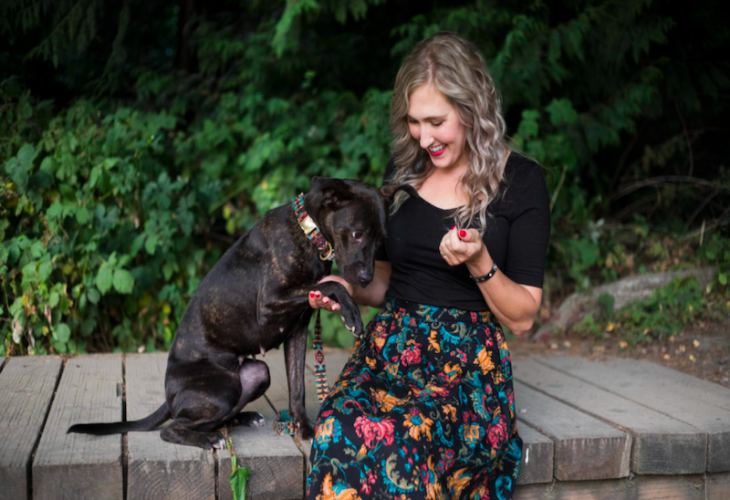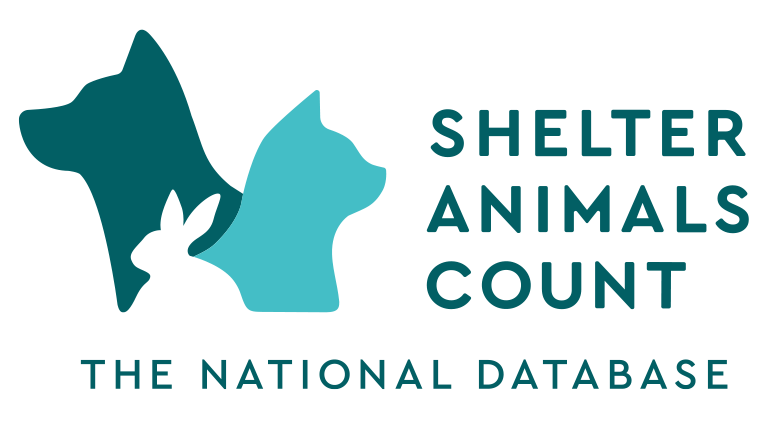HeraldNet: Animal shelters turn to fostering to help meet demand for pets
- Home
- Animal shelters turn to fostering to help meet demand for pets

03Oct’21
HeraldNet
By: Janice Podsada
Foster parents help Snohomish County shelters care for animals — and find them forever homes.
Adriana Reedy failed as a first-time foster parent — and she’s happy she did.
Reedy was only going to be a temporary caretaker for Juniper, a shy, skinny pit bull-Labrador mix at the Everett Animal Shelter. It didn’t work out that way.
“We completely bonded,” she said. “I ended up adopting her.”
Reedy is one of hundreds of animal lovers who helped local shelters care for dogs and cats and get them ready for adoption during the COVID-19 pandemic.
Pet adoptions spiked last year as we sought four-legged companionship or, working from home, found the time to care for a pet.
Across the U.S., dog and cat adoptions were up 15% last year over 2019, according to Shelter Animals Count, a nonprofit that tracks adoptions.
Interest in farm animal adoptions also rose — at least locally, said Stacey DiNuzzo, spokeswoman for Pasado’s Safe Haven in Sultan.
“Goats, cows, pigs — they need a higher level of care and, with people working from home, they could provide that,” DiNuzzo said.
Many animal shelters, however, were unable to meet the demand for pets.
PAWS in Lynnwood, the Everett Animal Shelter, The NOAH Center in Stanwood and Pasado’s Safe Haven closed to visitors during the height of the pandemic. Because of that, adoptions moved online or were conducted by appointment, which led to lower adoption numbers.
Demand also surged at the Progressive Animal Welfare Society — “We had a long, long wait list,” said Heidi Wills, PAWS CEO. But only 3,000 dogs and cats were adopted last year compared to 4,500 in 2019.
This year, PAWS and The NOAH Center airlifted 90 dogs and cats from California, but it still wasn’t enough.
“We didn’t have a lot of animals,” said Sara Bradshaw, operations director at The NOAH Center. “We weren’t able to bring as many animals in because some of our shelter partners stopped operating.”
Another reason for the shortage: Fewer animal owners surrendered their pets to shelters. Eviction moratoriums meant renters weren’t forced to relinquish dogs and cats because their new landlords didn’t allow pets.
PAWS and the Everett Animal Shelter stopped allowing volunteers inside. With fewer workers on site to care for the cats and dogs, including those with medical needs, it limited the number of animals the shelters could house.
“If someone found a stray, we would ask them to hang on to it — that way we wouldn’t have so many animals,” said Glynis Frederiksen, director of the Everett Animal Shelter.
NOAH and Pasado’s had enough staff to care for their animals, but PAWS and the Everett shelter turned to pet foster parents for help.
And help they did — those volunteers played a critical role during the pandemic. Without them, even fewer pets would have been available for adoption.
In fact, Reedy was hoping to adopt from the Everett Animal Shelter when she got the tap to be a temp.
“The dog I was interested was available for about an hour — and already had 100 applicants,” she said. When her bid fell through, shelter staff suggested she consider fostering, which is how Reedy connected with Juniper.
PAWS received more than 500 foster applications in March and April of 2020, Wills said. That’s 250% more than all of 2019.
And they’ve stuck around. PAWS now has 477 foster families, compared to 350 in 2019, Wills said.
“We were looking for all kinds of home environments for fostering — with yards or without, houses and apartments,” she said.
Prospective foster parents must attend a 60-90 minute virtual orientation. But more than anything, they need “a willingness to open your heart and home,” shelter spokeswoman Laura Follis said.
“It was incredible, the amount of people we were seeing,” said Brittany Cannon, who manages PAWS’ foster program.
Fosters not only housed the animals but socialized “kittens that need cuddling” and helped bashful dogs learn that it’s OK to be around us, Cannon said.
“One foster mom took a pregnant dog that ended up having 10 puppies,” Cannon said. “She took care of them for three months. We had all kinds of people — experienced and not — who wanted to get involved.”
Longtime fosters such as Nate Sage, an expert at caring for cats with ringworm, didn’t miss a beat either.
Since signing up to be a foster parent in 2011, Sage, a Lynnwood resident and emergency charge nurse, has fostered 96 cats, many with ringworm, a condition that can take two to three months to clear.
Sage’s diligence earned him the 2020 PAWS Foster Parent of the Year award. “I got a T-shirt and a trophy,” said Sage, whose two cats, Bohdi and Johnny Utah, have learned to tolerate newcomers.
Before the pandemic, the Everett Animal Shelter didn’t send animals to foster care. “They just stayed in the shelter,” said Frederiksen, who sought foster families when the shelter closed.
“People stepped up like you wouldn’t believe,” she said. “A lot of people were working from home and said, ‘I’ve got time for a puppy or a kitten where I didn’t have time before.’” When shuttered, the Everett Animal Shelter made an important discovery: The absence of visitors greatly reduced “kennel stress.”
“People coming through the shelter frightened the cats and had the dogs barking, barking,” Frederiksen said. “When we didn’t have people coming through the shelter, that behavior disappeared.”
Because of the change, the Everett shelter plans, for now, to stick to the online and by-appointment model it adopted during the pandemic.
When it came time for Reedy to put Juniper up for adoption, a family with two children responded. Although they looked like a “perfect fit,” Reedy couldn’t bring herself to let Juniper go.
After a tearful two days, she told the Everett Shelter, “I’m so sorry, I have to keep her.”
In animal shelter parlance, that’s known as a foster fail. It’s a happy event.
Juniper and Reedy have made a splash paddle-boarding Green Lake and Lake Union in Seattle. “She gets on the back of the board with me,” Reedy said. “She doesn’t like the water, she just likes to be with me.”
Now she’s helping Juniper become comfortable while on hikes in the woods. “It’s been wonderful watching her personality emerge,” said Reedy, a cancer researcher who moved to Seattle before the pandemic.
Before Juniper, Reedy was a homebody. But her smiley pup motivates Reedy to get out and navigate the city.
Rebekah Warnock, a Bothell resident and software developer, began fostering for PAWS in May 2020.
“I started last year when I started working from home during the pandemic,” Warnock said. ”I like hanging out with animals.”
A first-time foster parent, Warnock has two rescue dogs of her own: Goober, a corgi, and Mitski, “a big, 60-pound mutt.”
They don’t mind the company.
Among her recent fosters: Kira, a mother dog with seven pups, Archie, a senior cat, and now Hunny-Bunny, an 8-week-old kitten.
Warnock enjoys the challenge of coaxing timid puppies and cautious kittens out of their shell.
Wondering whether you should become a pet foster parent? Warnock has an easy answer: “If you like animals, and you’re up for some twists and turns, I say go for it.”
